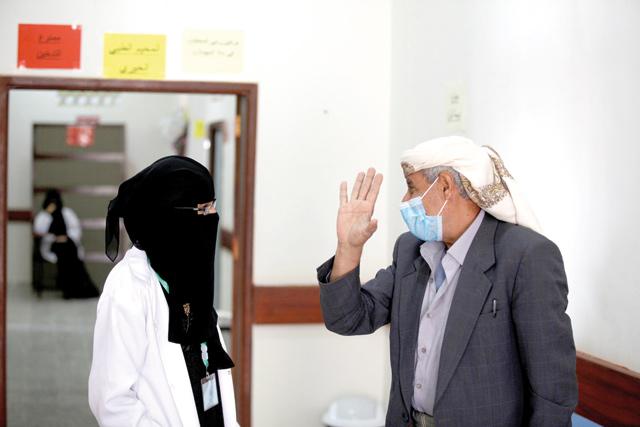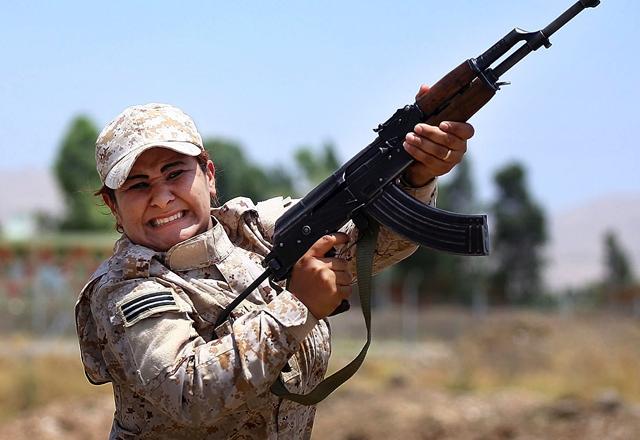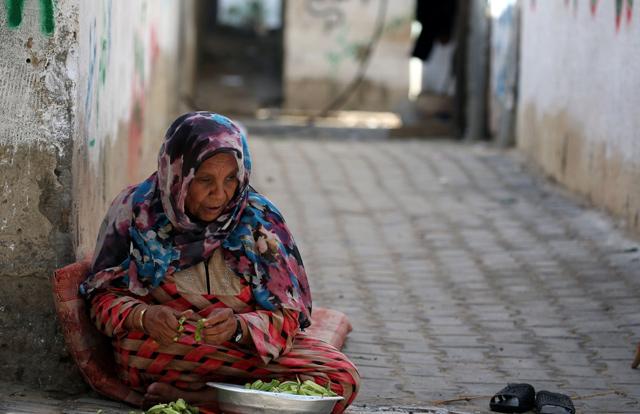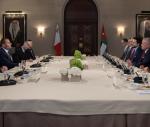You are here
War-wracked Yemen facing ‘catastrophic’ conditions — UN
By AFP - Feb 27,2018 - Last updated at Feb 27,2018

A patient talks to a volunteer nurse at a charitable medical centre which is offering free medical services to support those in need in Sanaa, Yemen, on Monday (Reuters photo)
UNITED NATIONS, United States — Living conditions in Yemen are “catastrophic” after three years of war, with a growing risk of famine and cholera still raging in the world’s worst humanitarian crisis, a senior UN aid official said Tuesday.
The UN Security Council was meeting to discuss Yemen a day after Russia vetoed a British-drafted resolution that would have pressured Iran over the supply of missiles to Yemen’s Houthi rebels.
“After three years of conflict, conditions in Yemen are catastrophic,” John Ging, UN director of aid operations, told the council.
“People’s lives have continued unravelling. Conflict has escalated since November driving an estimated 100,000 people from their homes,” said Ging.
A record 22.2 million people are in need of food aid, including 8.4 million threatened by severe hunger.
Cholera has infected 1.1 million people since April 2017 in the world’s worst outbreak, and diphtheria has returned to Yemen for the first time since 1982, said Ging.
A Saudi-led coalition supporting Yemen’s government has been fighting the Houthis since 2015 in a war that has killed thousands and left one of poorest countries in the Arab world on its knees.
Delivering a final report to the council, outgoing UN envoy Ismail Ould Cheikh Ahmed said that in the last two months, there had been renewed large-scale escalation in several areas including the Yemeni-Saudi border.
A report by a UN panel of experts in January found that ballistic missiles fired by the Houthis on Saudi Arabia were made in Iran, but Russia has questioned those findings.
“The parties have continued the destructive pattern of zero-sum politics which has led the country to plunge into more poverty and destruction,” said the envoy, who is stepping down after nearly three years as peace negotiator.
Cheikh Ahmed raised particular concern over the recruitment of thousands of child soldiers in the war, especially by the Houthi rebels.
UN Secretary-General Antonio Guterres this month appointed Martin Griffiths of Britain to replace Cheikh Ahmed and lead UN efforts to end the war in Yemen.
Related Articles
Egypt’s President Abdel Fattah Al Sisi said on Sunday a referendum on the independence of Iraq’s Kurdish region would lead to a “catastrophic” break up of the country, which is facing an onslaught by Sunni Islamist militants.
GENEVA — The UN said Wednesday that the situation in Gaza was "catastrophic" after 11 years of "economic siege" and warned that Washington's
AMMAN — US cable TV news network MSNBC, which is owned by NBCUniversal, conducted an interview with His Majesty King Abdullah on Monday.In t

















